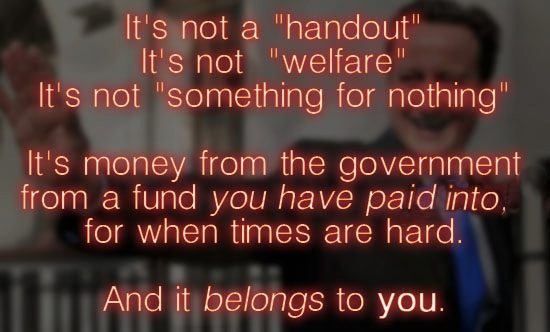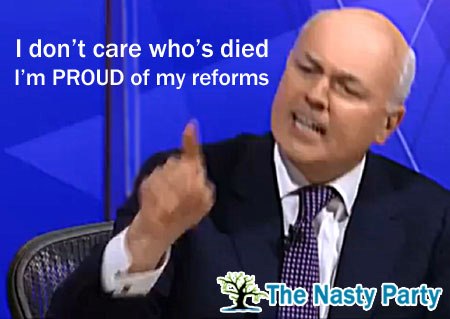The Labour Party have always supported cumulative and equality impact assessments, and embedded this practice in their own legislative process. I know this because it was an issue I raised in discussion with Anne McGuire last year, I was very aware that the welfare reforms had not undergone such essential cumulative impact assessment. And now we are seeing the devastating impacts of those “reforms”.
Impact assessments were enshrined in Labour’s Equality Act, implemented in 2010. This issue is something that I have felt very strongly about, not least because equality and cumulative impact assessments are a positive way of safeguarding our most fundamental human rights. They also assure fairness and safety, and ensure that people’s circumstances are not made worse by policies.
Impact assessments are intended to ensure that neither discrimination nor adverse treatment to people from different groups occurs based on age, race, religion, disability, gender, sexual orientation, transgender, pregnancy and maternity, socio-economic status, marriage and civil partnership and other groups who may experience disparities in opportunity. Where there is any identified potential for discrimination or adverse treatment, action plans will be created to counter this and demonstrate that the equality impact assessment process is leading to positive change. This is a legal requirement.
Labour have recognised it is disabled people and the most vulnerable who bear a disproportionate share of the austerity cuts, simply because of the inequality they face in employment, which means they are more likely to rely on benefits. In other words they are facing a double penalty simply because of their characteristics – disadvantaged in the (now somewhat limited) labour market and now targeted by benefit “reform”. (Cuts). This also raises further concern about human rights, since this Coalition action constitutes discrimination on the basis of “characteristics”, in accordance with Labour’s Equality Act.
The general duty to perform equality impact assessments applies across the full range of our public activities. This means that the duty applies to policy-making, budget setting, developing high level strategies, plans, procedures, reports, business cases, service provision, employment matters, and enforcement or statutory discretion and decision-making. Essentially, it applies to everything we do. It also applies to our functions in relation to procurement and contracting out services. In addition, the duty applies to private and voluntary bodies carrying out our public functions on our behalf.
However, under the Equality Act, the need for public bodies in England to undertake or publish an equality impact assessment (EIA) of their policies, practices and decisions was removed in April 2011 by the Tory-led Coalition, when the “single equality duty” was introduced. Public bodies must still give “due regard” to the need to avoid discrimination and promote equality of opportunity for all protected groups when making policy decisions. They are also required to publish information showing how they are complying with this duty – but can do that…
“…without having to carry out lengthy and detailed impact assessments.” – David Cameron
Although the Government have produced some perfunctory impact assessment of each individual policy strand of the welfare “reforms”, these documents are useless. Worse than useless, in fact, because they give us – the media, policy analysts and anyone else caring to look at them – the impression that we know what the impact of the Government’s welfare reform agenda will be. But we don’t. And the Government doesn’t either. This is due to the fragmented nature of our welfare system – many people claim more than one benefit and tax credit at a time.
As a result, the impact of the Government’s plan to cut several benefits in several ways will inevitably affect some households repeatedly. The Government’s impact assessments only consider each cut in isolation, and cannot quantify this cumulative effect. And so the government had identified dozens of individual groups who will experience a reduction in income, but gave no indication if they are actually identifying the same group over and over again. We now know that it IS the same group that has been hit by multiple cuts. Thousands of disabled people have been hit by as many as six welfare cuts simultaneously.
We do know from “Briefing on How Cuts Are Targeted” by Dr Simon Duffy that if we compare the relative targeting of the welfare cuts on different groups then:
- People in poverty are targeted 5 times more than most citizens
- Disabled people are targeted 9 times more than most citizens
- People needing social care are targeted 19 times more than most citizens
For anyone, this represents the loss of substantial sums of money, essential for meeting fundamental needs. But for disabled people struggling with spiralling costs of living, and the withdrawal of public services and support also, such multiple financial losses are life-changing and devastating.
Individual impact assessments are utilised when making a single policy change here and there, but when dozens of changes are made simultaneously – 18 impact assessments were issued for the Welfare Reform Bill alone – this piecemeal approach is both inadequate and very misleading.
Each impact assessment identifies a relatively small amount of money shared across a large group. On the face of it, reading them, one might conclude that the cuts are being widely and fairly spread. But the reality is that three, four, or more losses affect a single person. This is the case for hundreds of thousands of people across the country. How can we evaluate the fairness of such a comprehensive package of cuts when its the case that the assessments have provided no real overview of who will be affected, and to what extent? We can not. That was very clearly the aim.
Reading though the Tory-led “equality impact assessment” for universal credit, I can say that the emphasis is strictly on justifying the legislation, and utilises Coalition propaganda, and glib, superficial assurances such as “there will be significant opportunities to promote equality for disabled people through improving work incentives and smoothing the transition into work”, without any explanation as to how this will be achieved. And of course we know that “work incentives” are actually punitive measures, including the use of sanctions, rather than support offered in any meaningful and real way.
And only the Tories would have the utter mendacity to claim that benefit CUTS will contribute to a reduction in the poverty rate amongst disabled households. We know that this is a very blatant lie. It doesn’t take any degree of genius to work that out, either
I have written to the Labour Party to raise my own concerns about the Coalition’s abandonment of effective impact assessments, as a means of protecting human rights and as a way of ensuring that policies are fair, safe, none discriminatory and democratic. I know many others have also campaigned regarding this important issue.
I have had the following response from Liam Byrne:
“Dear Susan,
Time to come clean.
After more than three years in power, it’s time for this Government to finally come clean and tell us exactly what impact their changes will have on the lives of disabled people and their carers. So on Wednesday 10 July, Labour will drag Ministers to the House of Commons to debate the changes they have made that affect disabled people, and at about 16:00 we will force a vote to demand a Cumulative Impact Assessment by October 2013 at the latest – and we will be calling on MPs from across the House to support it.
I am asking supporters to help build pressure on the government in three ways:
- Write to your MP and ask them to back the motion
- Write to your local paper and explain why we urgently need a cumulative impact assessment
- Tweet your support using #MakeRightsReality
Here is the link to the motion – http://liambyrne.co.uk/?p=4534
This government is failing to support our disabled people. It’s time for Ministers to come clean, admit where they are getting things wrong and change course.
It’s time to start making rights a reality for disabled people.
Please forward this email to anyone who might be interested.
This is the motion in full:
That this House believes that the Government should publish a cumulative impact assessment of the changes made by this Government that affect disabled people (to be published by October 2013).
Yours,
Liam Byrne”.
Please support this move, by pressuring your MP, and by publicising the need for a cumulative impact assessment, and emphasising the crucial role it has in democratic process, as a way of ensuring policies are fair and safe, and as a fundamental safeguard of our human rights.
Further reading:
Osborne ‘forgets’ to assess impact of benefits cap on disabled people




Reblogged this on thepositivevoice.
LikeLike
Reblogged this on michellekent1.
LikeLike
Top post. I look forward in order to reading much more. Cheers
LikeLike